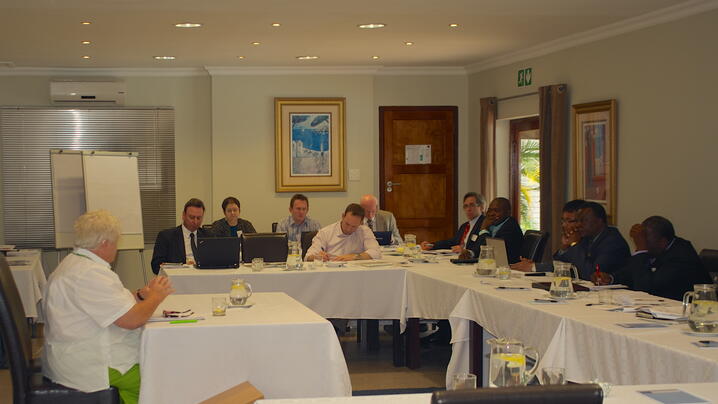
With more than half the world’s population living in urban areas and increasing levels of national assets and economic activity concentrated in cities and towns globally, addressing urban climate change adaptation is taking on greater importance to protect critical infrastructure, vulnerable populations, and capital assets. Increased attention to urban climate adaptation is essential if developing and emerging economies expect to build national resiliency to adverse climate change. An emerging institutional arrangement to operationalize the Durban Adaptation Charter (DAC) holds promise of becoming one of the important players in helping local governments address climate change adaptation challenges.
The DAC is premised on the need to build capacity across various levels of government, civil society, and other institutional stakeholders to improve urban adaptive capacity and transformation by mainstreaming adaptation measures that strengthen the urban sub-systems critical to creating urban resiliency. The high degree of scientific uncertainty regarding the pace of global warming and concomitant impacts of climate change in specific urban areas, argues for an approach that integrates climate adaptation measures into accepted programmatic areas such as social and economic development, disaster risk reduction, ecosystem conservation, and so forth to build the political consensus needed to proceed with adaptation investment decisions that otherwise pursued in isolation might be subject to political controversy that could undermine their viability or potential for funding and implementation. As urban areas interact with their surrounding rural and agricultural hinterlands, urban adaptation measures must also focus on land-use management, resource management, and other urban functions that affect rural and agricultural development. The goal should be a regional approach that builds synergies with peri-urban and surrounding rural and agricultural areas, thus attention needs to be focused on strengthening climate adaptation’s role in supporting a variety of sub-systems, such as livelihood development, food security, shelter and basic services, and disaster management and reduction. Establishing the DAC as an institution will strengthen South-to-South collaboration on urban climate change adaptation issues, and strengthen the international voice of the South in shaping the global urban climate change adaptation agenda.
To begin the process of establishing the DAC as an institution, ICMA, through its USAID-funded CityLinks program, supported a workshop in Durban, South Africa that brought together thought-leaders from around the globe to explore how best to operationalize the DAC to provide support for urban climate change adaptation capacity building. The workshop resulted in the outline of a program to help the DAC play a pivotal role in mobilizing international support for urban climate change adaptation, and supporting cities in developing countries to improve their own capacity for designing, implementing, and monitoring and evaluating their climate change adaptation programs. Critical to this process is defining the DAC mission and program, as well as establishing the governance structures appropriate for an organization dedicated to serving its signatory cities’ adaptation capacity building needs. ICMA’s CityLinks program will continue to support, therefore, the DAC during a transitional phase that will help the DAC Secretariat create the institutional foundation of the DAC. In addition to direct assistance to help the DAC articulate its mission, program, and organizational structure, ICMA will draw on its members to support a city-to-city partnership between Fort Lauderdale, Florida and the city of Durban, which will lead to Durban providing climate change adaptation services through a South-South city partnership with a yet-to-be-named city in the Southern Africa Development Community (SADAC) region. As these city partnerships unfold, we will be providing updates to our readers.
New, Reduced Membership Dues
A new, reduced dues rate is available for CAOs/ACAOs, along with additional discounts for those in smaller communities, has been implemented. Learn more and be sure to join or renew today!
